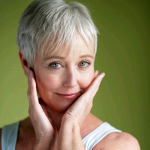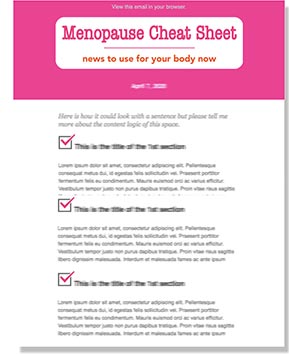Greater confidence, higher life satisfaction and increased emotional wisdom. As we grow older there’s every reason to believe that the best is yet to come
BY REBECCA ALEXANDER
Getting older is something that happens to other people. As children, 20 seems impossibly old, thirtysomething is unimaginable. But when we reach our twenties or thirties, our notion of old age moves up a decade, and then another, and another. Our denial is hardly surprising, given that our society tends to equate age with loss – of looks, energy, fertility, health, potential. Ageing, we’re told, is some- thing to be disguised with creams, Botox and hair dye. So what should we make of the finding that people in their eighties report the lowest levels of stress and worry, and the highest levels of wellbeing, of any generation? Or of the new model of happiness that shows that rather than peaking in mid-life and falling away as we get older, happiness follows a U-shaped curve, bot- toming out in early middle age, then undergoing a dramatic resurgence in our late forties and early fifties. Perhaps we shouldn’t be surprised. Although society tries hard to convince us that young is better, the growing evidence is that the positives of mid-life and beyond more than outweigh the negatives. We can all list the casualties of age – eyesight, memory, muscle tone, skin elasticity – but how many of us know that our brains continue to develop as we age, creating bet- ter and stronger neural networks? Or that our amygdala, a part of the brain that plays a key role in emotional processing, starts to respond less to negative events, and more to positive events. Barbara Strauch, health and medical science editor at The New York Times and author of The Secret Life Of The Grown-Up Brain (Penguin), has made it her mission to explain how our brains improve with age. ‘While there are clear declines in mid-life, our brains continue to grow, so there is a net gain,’ she says. ‘We’re better at emotional regulation – we have more mixed reactions to anger and sadness that can slow down our responses and give us more time for meas- ured response, nuance and even wisdom. We’re bet- ter at judging character. We know what to ignore.’
MIRROR, MIRROR ON THE WALL
This is positive news indeed, but it would be naïve to think that our distaste for ageing is linked to our physical and mental performance alone. It has as much to do with how we feel when we look in the mirror, and what sort of status society accords us. A look through the headlines is not encouraging. ‘Older women portrayed as “sexless grandmothers”,’ shouts one paper. ‘Mirror phobia affects 90 per cent of women over 40,’ claims another. Celebrities are routinely praised or derided based on how ‘well’ they are ageing. It’s encouraging to have amazing-looking 50- and 60-year-old role models such as Joanna Lumley and Meryl Streep, but it also means we can feel pressure to look equally good, without the same access to beauticians, personal trainers and diet experts. Faced with this insistence on youthful looks, women often go one of two ways, says Barbara Grufferman, author of The Best Of Everything After 50 (Running Press). ‘We might think about having invasive procedures to hold off the appearance of ageing,or we pull the proverbial blanket over our heads, doing nothing, which can result in letting ourselves go,’ she says.‘But there’s a middle ground; be the best you can be, whatever your age. Don’t fight it, don’t try to look younger. Women often try to hold on to their youth instead of moving ahead with life. It’s a mistake. Living in denial about your age can lead to disappointment, insecurity and making decisions based on how others will view you rather than on what is truly best for you.’
A FORCE TO BE RECKONED WITH As for the idea that we become less visible as we age, forget it, says Grufferman.‘In the US, the baby boomer market is growing every day,’she says.‘It spends more money than anyone else and is a political powerhouse. Invisible? I don’t think so.’ And it’s not just as a group that we exercise power. Individual women in mid-life and beyond are increasingly planning a fulfilled and productive second half of their life, putting energy into work, their families and society at large. Even if we do feel less visible, we can use it to our advantage, says Susan Nolen-Hoeksema, professor of psychology at Yale University, and author of The Power Of Women (Piatkus). ‘It can be a good thing in that you don’t feel under the microscope anymore –
With age comes confidence and a liberation from caring so much about what others think you can relax and look the way you want to look, rather than the way others expect,’ she says. Perhaps one of the most exciting aspects of growing up today is that we can do it on our own terms. Unlike, say, our grandmothers’ generation, getting older doesn’t mean we have to don sensible clothes, limit our expectations or stop having fun. With age comes confidence, experience and a liberation from caring so much about what others think, plus the self- knowledge to plan a future that suits us, not one that conforms to external expectations.‘Revel in the sense of strength and competence and satisfaction with life that comes with age, and use it to effect positive change in the world,’ says Nolen-Hoeksema. ‘Use the wisdom you’ve developed to make plans for the future – don’t just wait for things to happen.’






























































